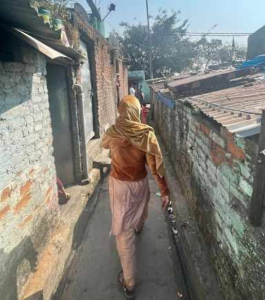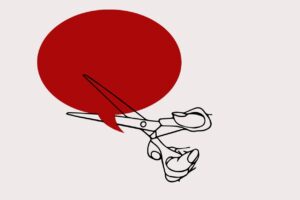Excerpted from the India chapter of ‘Truth vs Misinformation: The collective push back’ South Asia Press Freedom Report 2018-2019, released by UNESCO on the occasion of World Press Freedom Day May 3, 2019
LITIGATION OVERLOAD
The thicket of litigation that has sprung up over particular stories is a feature of an increasingly testy and contentious relationship between the Indian media and political and business actors linked to governmental authority.
In October 2018, Anil Ambani’s Reliance Group filed a Rs 7,000 crore (about USD 100 million) defamation suit against founder editor of The Citizen, Seema Mustafa, for its reportage on the Rafale defence deal. By one count, the corporate leader Anil Ambani, once ranked among India’s richest men, has filed 28 defamation suits in a single court in the western Indian city of Ahmedabad. Of those, 20 are against media outlets and practitioners.
A tally by one of the newspapers sued for defamation, puts total damages claimed in all Ambani’s suits at INR 650 billion (USD 9.4 billion). Litigants normally are liable to pay court fees in proportion to the monies claimed. Ahmedabad though has a different set of rules, levying a court fee of a mere INR 75,000 (USD 1,080), irrespective of the damages claimed. It is thus a forum of convenience for political and business actors to carry out their campaign of legal harassment of the press.
Many of the Ambani suits were filed to silence media reporting on a high-level defence deal for the acquisition of Rafale fighter jets for the Indian Air Force from France’s Dassault Aviation. Ambani is believed to have floated a firm, which was within a fortnight awarded a significant share of the contract value of the fighter aircraft deal.
After a series of investigative reports by The Hindu, India’s Supreme Court took up a petition demanding a new criminal investigation, after having dismissed it earlier.At the hearing, the Attorney-General of India, K.K. Venugopal informed the Supreme Court that all the documents suggesting malfeasance in the deal had been obtained through illegal means. The Government, he asserted, would not be obliged to answer questions arising from stolen documents. Media platforms publishing the documents connected with the Rafale deal could be prosecuted under the Official Secrets Act (OSA), he warned.
N. Ram, former editor of The Hindu and now chairman of the proprietary company, dismissed any suggestion of impropriety. He said the documents were obtained from “confidential sources” which would remain protected. Finally, it was an unintended outcome of the Attorney-General’s submissions, that they testified to the authenticity of the published documents. At a subsequent hearing, one Supreme Court judge observed that the OSA had been to all practical purposes, superseded by the “revolution in governance” ushered in by the passage in 2005 of India’s Right to Information Act (RTI). Hearings will continue, though the Supreme Court is unlikely determine while the electoral process is on.
On April 10, the three-member bench of the Supreme Court ruled unanimously, that the documents would be considered as part of the court’s deliberations on the petition. The bench in two separate but concurring judgments endorsed the right of the press in general, to publish sensitive documents of the kind unearthed by The Hindu in relation to the Rafale deal.
Patricia Mukhim convicted for contempt
The occasional triumph aside, the year brought legal travails aplenty for journalists and newspapers without the national profile and financial resources of The Hindu. In March 2019, the High Court in the north-eastern state of Meghalaya found editor Patricia Mukhim and publisher Shobha Chaudhuri of Shillong Times guilty of contempt. They were fined INR 200,000 (USD 2,900) each, for the alleged offence of publishing two articles that questioned decisions of the High Court in matters involving the remuneration and post-retirement benefits enjoyed by judges. Though both had responded to a summons from the High Court in December and submitted an apology in February, the judge who happened to be on the verge of retirement, found these insufficient as acts of contrition. Mukhim and Chaudhuri were given a week to pay their fines, failing which they faced six months of imprisonment and a ban on their newspaper. Following a crowd-sourcing initiative, the matter went up in appeal before the Supreme Court, which stayed the conviction.
Wangkhem arrested under NSA
In November 2018, Manipur journalist Kishorechandra Wangkhem was taken into custody for posting four videos and comments on his Facebook page, criticizing the state government led by the BJP and describing the Manipur chief minister as a “puppet” of Prime Minister Narendra Modi’s federal government. The journalist also went on to criticize the adoption of practices from the northern plains of India into Manipur’s public rituals. Police reported that the videos “bring or attempt to bring into hatred or contempt, or excites or attempts to excite disaffection towards the government” and held him for six days. Wangkhem was granted bail on the ground that his language though intemperate, may have been an impulsive reaction. The local police however went on to frame charges under the National Security Act, which effectively eliminates all possibilities of bail for a year.
Defending its decision to jail the journalist, the Manipur government claimed that the 39-year-old was arrested to “prevent him from acting in any matter pre-judicial to the security of the state and maintenance of public order”.Wangkhem’s family went on to challenge the detention in Manipur’s High Court with political opponents and human rights advocates saying that it was an attempt to silence dissent. On April 8, the Manipur High Court quashed all charges against Wangkhem and ordered his immediate release.
There is a demand that reparations be rendered the wronged journalist for loss of reputation and damage to health, though the chances of securing this seems unlikely in the current climate.
Abhijit Iyer-Mitra, arresed for breach of legislative privilege
Orders for the arrest of Abhijit Iyer-Mitra, a national security commentator, were issued in September 2018 by police in Odisha in eastern India, after a Twitter post which allegedly ridiculed the iconography of some of the state’s most revered temples and ascribed it to a “conspiracy of the Muslims”. Iyer-Mitra was granted bail but went on to cast slurs against the elected legislators of Odisha. A month after the initial arrest warrant was issued, Iyer-Mitra was taken in to custody from his home in Delhi by Odisha police, on the additional charges of breach of legislative privilege.
Legislative privilege is an ill-defined provision and like contempt of court, invoked with extreme caprice to curb the public right to free speech. Iyer-Mitra spent 43 days imprisoned in what seemed collateral punishment for his friendship with an influential politician from Odisha, then going through a rift with the chief minister. He finally walked free after all charges were dropped. His incarceration was also a time of the failure of solidarity among media professionals.
As in the case of TV news anchor Arnab Goswami, this was another instance when political partisanship overwhelmed principle, occasioning rather more feeble protests than warranted over the arbitrary application of a law to punish a media practitioner.
Kamal Shukla charged with sedition
In the central Indian state of Chhattisgarh, long in the grip of a Maoist insurgency, editor Kamal Shukla of Bhoomkaal magazine was charged under the draconian law of sedition for sharing a cartoon on social media with a few comments of his own. In July 2018, the Chhattisgarh High Court granted him anticipatory bail, which gives him immunity from arrest. In issuing its order, the High Court cited well-established case law, often ignored, on essential conditions that must be met before sedition law is invoked.
Download the India chapter here
Download the full report here :


